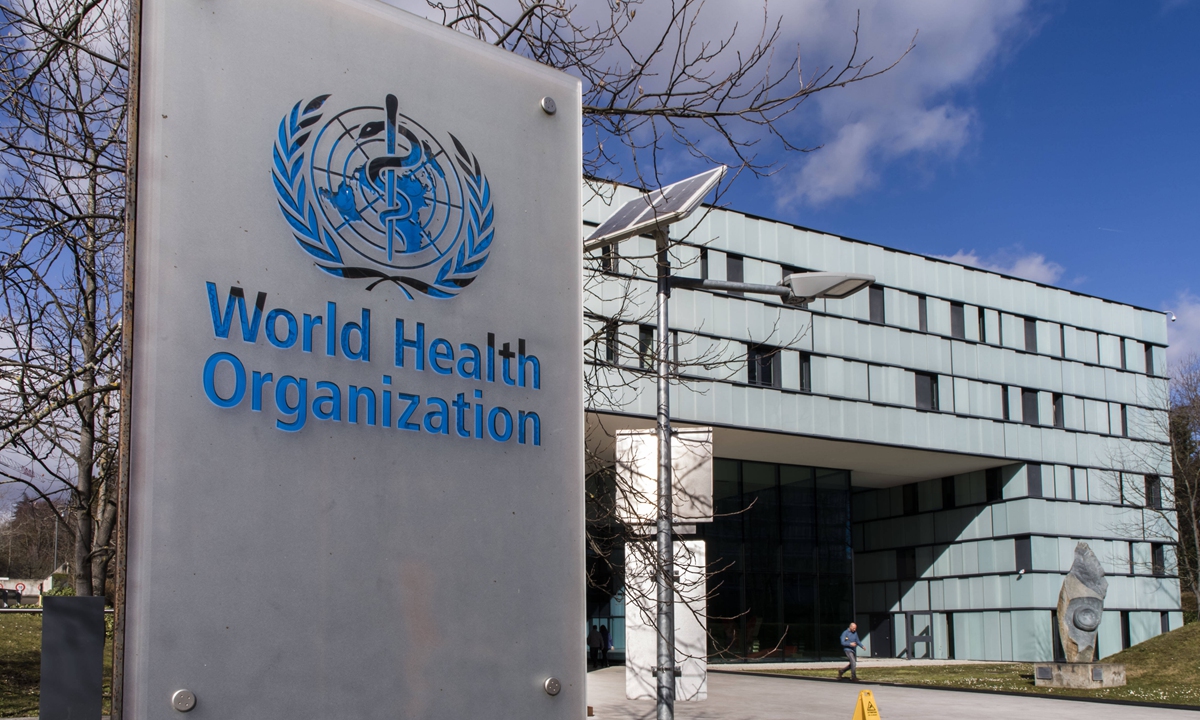It is time to start solving the mystery of Long COVID, an aspect of the pandemic blighting millions of lives, the World Health Organization's leader on post-COVID conditions told AFP.
Little is known about why some people, after coming through the acute phase of COVID-19, struggle to recover and suffer ongoing symptoms including tiredness, brain fog, cardiac and neurological disorders.

World Health Organization headquarters office building in Geneva, Switzerland, on February 18, 2020 Photo: VCG
At this stage of the pandemic, the world is fixated on vaccine roll-out and new, more contagious variants of the coronavirus. However, Long COVID deserves similar urgent attention, said Janet Diaz, the clinical care lead in the WHO's emergencies program, ahead of a push for a globally unified approach to the problem.
"We still don't fully understand what Long COVID is," Diaz told AFP in an interview outside the WHO's headquarters in Geneva.
"There's quite a bit to learn, but I am confident that the scientific community is really rallying around."
Tellingly, Long COVID does not yet have a proper name.
The WHO currently calls it post-COVID condition, while other terms in circulation include post-acute COVID syndrome and COVID long haulers.
The WHO is hosting a first global seminar on Long COVID on February 9. It will bring scientists, experts and clinicians together to define the condition, give it a formal name and harmonize study methods.
"It's a condition that needs further description, further understanding of how many are affected and further understanding of what is causing it, so we can better prevent, manage and treat it," said Diaz, 48, a US respiratory physician and intensive care doctor. She said British and other studies suggested potentially one in 10 cases may have prolonged symptoms one month after infection, but there was no picture yet of how long those conditions might persist.
The elderly and those with underlying conditions are most at risk of serious disease from COVID-19. But the profile of Long COVID patients does not match. It affects people with varying degrees of severity of disease and "seems to potentially also include younger people," including children, said Diaz.
While the pandemic response priority remains preventing people from catching the virus and falling ill, treating coronavirus cases "must also now include care after the acute illness... until you get back to full health," Diaz said.
Diaz said fatigue seemed to be the most common symptom, with others including post-exertional malaise, cognitive dysfunction or brain fog, shortness of breath, heart palpitations and neurological problems.
"How these are all related - that's what we don't understand. Why would one person get this, and the other person get that?" asked Diaz, saying researchers needed to crack the underlying mechanisms of the disease that were causing these persistent symptoms.




